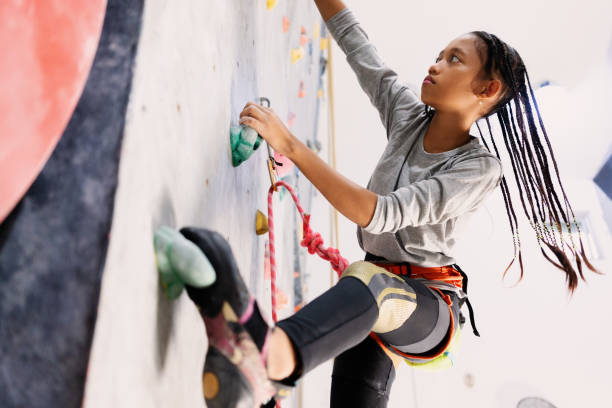Why Adolescents Need More Healthy Risk Taking Activities
 By Pastor Tee, Pastor of Outreach
By Pastor Tee, Pastor of Outreach
Can healthy risk-taking help young people deal with failure and improve their mental health?
All children are creative and risk takers in kindergarten. During this time, informal play is emphasized, curiosity is encouraged, socializing is the norm and failure is reframed as an opportunity for growth. But first grade brings learning through sitting long periods of time, rules as restrictions and rote learning. This continues through grade school and is the opposite of creativity. Healthy risk taking goes down and delinquent risk taking goes up.
Although there are always young creative souls who will find their own way, most young people need learnning spaces to unleash their creativity. In addition, according to The Journal of Primary Prevention, the findings from a published study indicates that children from disadvantaged backgrounds who participated in an arts enrichment program experienced a significant increase in self-esteem, social skills, and leadership competencies. It can also help students learn to manage their emotions and have compassion for others. This increases tolerance for activities that involve uncertainty.
A risk is essentially just an action for which the outcome is not guaranteed. Since adolescence is particularly filled with uncertainty because of shifting social relationships, new responsibilities, and more challenging schoolwork, young people must learn to tolerate more ambiguity. This agrees with research that proves adolescents are more willing than adults to lean into uncertainty.
This also translates to outside activities.
According to the National Institutes of Health, being in nature and participating in outdoor activities including physical fitness reduces stress and improves the mental health of teens. Improved mental health helps increase the chances of young people engaging in healthy risk taking ventures. This has led to the creation of initiatives for adolescents that encouraged self governance, skill development, moral reasoning, empathy and responsibility. Outward Bound, created in 1941, is a good example of a responsibility-driven program exposing young people to real world dilemmas through wilderness experiences.
Friday Night Live (FNL), an initiative aimed at middle school students, builds on the ideas in this article. Started by OCMC in 2021 right after the pandemic was ending, it engages churched and unchurched youth twice a month.
FNL promotes 4 values:
-
Spiritual Development
-
Mentorship
-
Community
-
Physical Activity
 Because younger teens are more at risk for depression and loneliness from heavy social media use and screen activities, FNL is putting more emphasis on mentoring. We are exploring a pilot program we created called Mentoring Crews. We identified 3-5 unchurched middle schoolers who with two high school volunteers and a young adult intern. They meet monthly since the middle schoolers already have access to these high school volunteers. We hope the smaller same gender group size (with same gender leaders) will deepen relationships, spiritual development and emotional learning.
Because younger teens are more at risk for depression and loneliness from heavy social media use and screen activities, FNL is putting more emphasis on mentoring. We are exploring a pilot program we created called Mentoring Crews. We identified 3-5 unchurched middle schoolers who with two high school volunteers and a young adult intern. They meet monthly since the middle schoolers already have access to these high school volunteers. We hope the smaller same gender group size (with same gender leaders) will deepen relationships, spiritual development and emotional learning.
Jesus provided a similar approach for his disciples. He planted ideas in them, trusted them, was faithful to them and prayed for them. Initiatives that offer opportunities for healthy risk-taking and bonding help improve adolescent mental health and prepare them for adulthood. Too often, parents/guardians are waiting too late to expose them OR they expose them too early without providing proper guidelines. We hope that more churches will start community programs aimed at improving the mental well being of adolescents.


